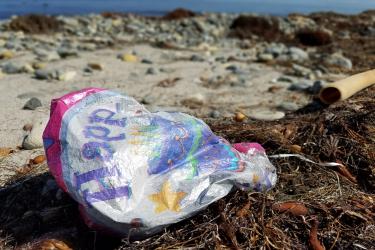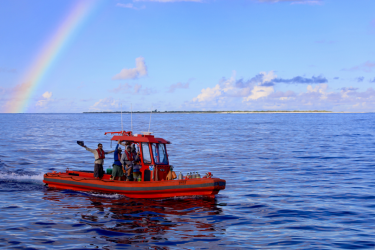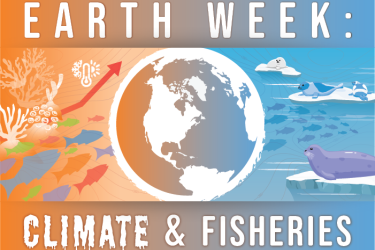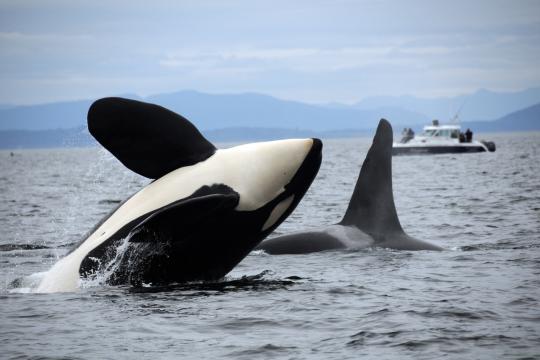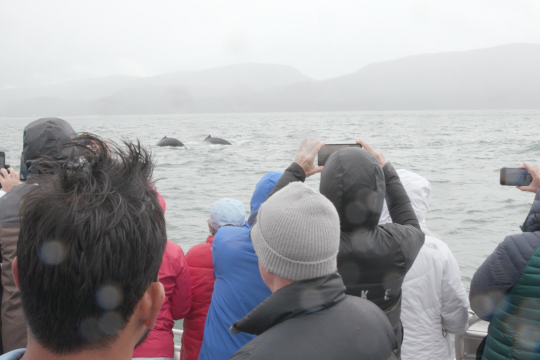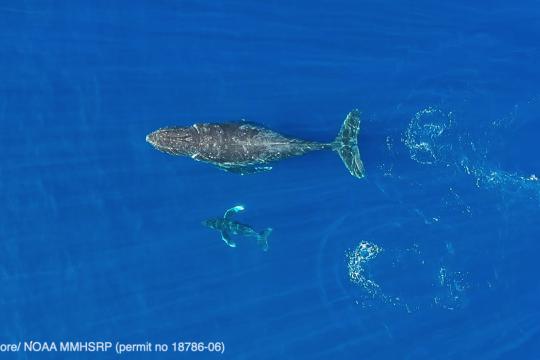The Marine Mammal Protection Act allows marine mammals to be held for public display purposes including importing marine mammals or removing them from the wild for public display. NOAA Fisheries has jurisdiction over cetaceans (dolphins, porpoises, and whales) and pinnipeds (seals and sea lions, excluding walruses). The U.S. Fish and Wildlife Service has jurisdiction over all other marine mammal species.
What is NOAA Fisheries' role in public display?
When it comes to public display, NOAA Fisheries:
Issues permits for importing marine mammals and collecting them from the wild.
Maintains the National Inventory of Marine Mammals, which tracks acquisitions (births, wild captures, imports), dispositions (deaths, escapes, releases), transfers (ownership changes) and transports (physical moves) to other facilities.
Regulates exports of marine mammals.
Places non-releasable stranded marine mammals in public display facilities.
Are U.S. facilities required to have a permit to keep marine mammals on public display?
No. Permits are not required to maintain marine mammals in public display facilities, such as zoos and aquariums.
However, a scientific research permit is required to conduct intrusive research on captive animals. This includes activities that, in the reasonable judgment of the attending veterinarian, would constitute a risk to the captive animal’s health or welfare.
Additionally, species that are listed as threatened or endangered under the Endangered Species Act (ESA) may not be held for public display purposes and may require a scientific research or enhancement permit.
What must a U.S. facility do to have marine mammals on public display?
A facility must meet the following criteria, as outlined by the MMPA:
Offer an education or conservation program based on industry standards.
Be open to the public on a regularly scheduled basis.
Be licensed or registered by the U.S. Department of Agriculture’s Animal and Plant Health Inspection Service (USDA/APHIS) per the Animal Welfare Act.
What is required to import or remove a marine mammal from the wild for public display?
For marine mammals to be imported from foreign countries for public display, or removed from the wild in the United States for public display, the receiving person or facility must apply for and be granted an MMPA public display permit as well as meet the 3 criteria outlined above.
To apply for a permit to import a marine mammal to the United States, or remove a marine mammal from the wild in the United States: link to public display permit page.
What is required to export marine mammals to other countries for public display?
For marine mammals to be exported to foreign countries for public display, the receiving person or facility must meet standards that are comparable to those required of a U.S. facility (see above).
In addition, the appropriate agency of the foreign government (e.g., the Convention on International Trade in Endangered Species (CITES) management authority) must certify that:
The information set forth in the application is accurate.
The laws and regulations of the foreign government involved allow enforcement of the terms and conditions of the authorization, and that the foreign government will enforce all terms and conditions.
The foreign government involved will afford comity to any authorization amendment, modification, suspension or revocation decision.
Marine mammals, including progeny, that are listed as threatened or endangered under the ESA, or are designated as depleted under the MMPA, may not be exported to foreign countries for public display.
How can I request information from the marine mammal inventory?
NOAA Fisheries maintains an inventory of permanently captive marine mammals under our jurisdiction (whales, dolphins, porpoises, seals and sea lions). Anyone may request information from the National Marine Mammal Inventory database under the Freedom of Information Act (FOIA), through the FOIA online system. This system allows you to track the progress of your request and retrieve the data electronically. To submit your request, search by NOAA or the Department of Commerce, parent department of NOAA.
Please consider the following questions when submitting your request:
Do you need information on -
- a particular owner (who has legal custody) or a particular facility (physical location)?
- just cetaceans, just pinnipeds, both, or only a particular species?
- all animals, or just those that are currently alive or deceased?
- particular source codes (i.e. wild caught, captive born, imported)?
Marine mammal Owners and Facilities may request owner/facility-specific information, including animal-specific data sheets by contacting NOAA Fisheries, Office of Protected Resources. At this time, inventory reports are not available online and must be requested. To request your inventory reports:
- Email: NIMM.inventory@noaa.gov
- Phone: 301-427-8401
- Mail:
Permits and Conservation Division, Office of Protected Resources, NMFS
1315 East-West Highway, Suite 13705
Silver Spring, MD 20910
Other Resources
Animal Welfare Concerns: Under the Animal Welfare Act, the USDA/APHIS has jurisdiction over animal care and maintenance for all marine mammals held for public display. This includes space, veterinary care, transport, and public interaction programs.
Permits for Public Display: The 1994 amendments to the MMPA transferred authority over animal care and maintenance to the USDA, APHIS and removed the requirement for facilities to obtain MMPA permits to hold marine mammals for public display. The only permits currently issued for public display are import of marine mammals and collection from the wild (including obtaining releasable stranded animals) (Section 104 of the MMPA). Depleted or ESA-listed marine mammals may not be held for public display purposes purposes.
Other Marine Mammals: The U.S. Fish and Wildlife Service has jurisdiction over polar bears, sea and marine otters, walruses, manatees, and dugongs.
